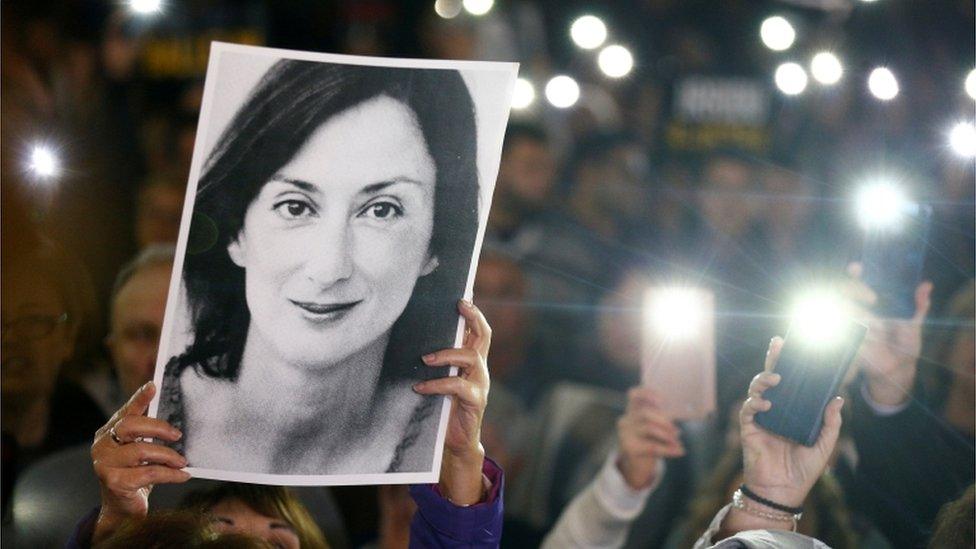Daphne Caruana Galizia: Malta businessman charged with complicity in murder
- Published
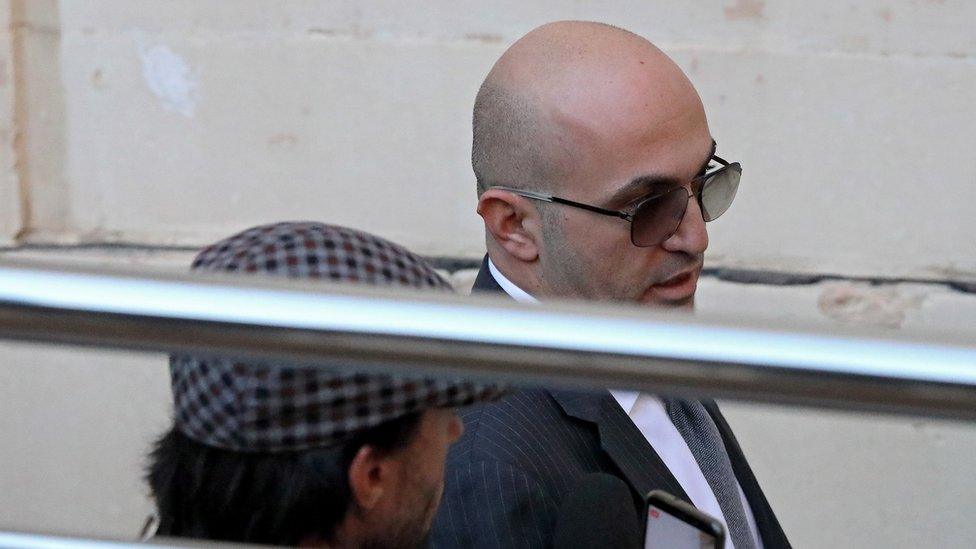
Yorgen Fenech has been repeatedly questioned
Maltese businessman Yorgen Fenech has been charged with complicity in the murder of investigative journalist Daphne Caruana Galizia in 2017.
He pleaded not guilty to that charge and four others others including membership of a criminal gang.
Relatives of the assassinated blogger were present in the court in Valletta.
The investigation into Caruana Galizia's death has rocked the island's government. Prime Minister Joseph Muscat is under pressure to resign.
His chief aide, Keith Schembri, quit this week amid reports he was being questioned by police, while Tourism Minister Konrad Mizzi also resigned and Economy Minister Chris Cardona took the decision to suspend himself.
Three people are awaiting trial for Caruana Galizia's murder in a car bombing but the police investigation is now focusing on who ordered the killing and why.
Who is Yorgen Fenech?
He has been repeatedly questioned over the killing since trying to leave the island on his yacht on 20 November, and sought a pardon in return for providing information but his request was rejected.
Maltese media allege he was familiar with Melvin Theuma, a taxi driver with links to criminal enterprises who has been described in local media as a potential "middleman" in the murder.
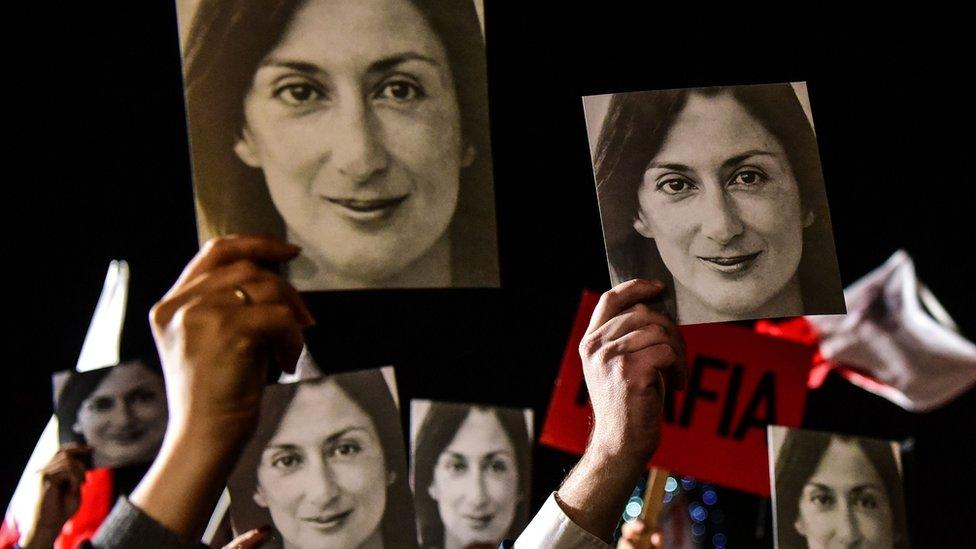
Caruana Galizia reported on allegations relating to the Panama Papers before her death
Mr Fenech is a well-known figure in Malta who has served as head of the Tumas business group and a director of energy company Electrogas but recently resigned from both positions.
He was identified last year as being the owner of a mysterious Dubai-registered company, 17 Black.
The company was listed in the Panama Papers - confidential documents leaked from a Panamanian law firm in 2016 which revealed how the wealthy and powerful use tax havens to get around the law.
Caruana Galizia had written about 17 Black eight months before her death, alleging it had links to both Keith Schembri and Konrad Mizzi.

'Muscat must resign'
By Damian Grammaticas, BBC Europe correspondent, Valletta
Such has been the sensitivity of this case that Malta's main courthouse was opened specially, late in the evening for this hearing. Yorgen Fenech, one of Malta's richest men, was brought in under police guard.
The family of the murdered journalist Daphne Caruana Galizia, her parents, her sister, her husband and three sons were all in court.
They heard Mr Fenech deny charges of complicity in Ms Caruana Galizia's murder, of membership of a criminal gang, and conspiracy in planting the car bomb that killed her.
Outside court Ms Caruana Galizia's family said it was now time for Mr Muscat to resign as the allegations of shady dealing stretch to those around him. So far, though, Mr Muscat has refused to go.

Why have events come to a head?
Investigations into Caruana Galizia's murder intensified when Mr Theuma was pardoned on Monday.
The prime minister told parliament he was being given immunity in return for information about the killing. Maltese reports suggested he had audio recordings linked to the case.
Galizia's son, Paul, in 2018 called for a public inquiry over his mother's death
On Tuesday, Konrad Mizzi resigned and Chris Cardona took the decision to suspend himself after being questioned by police. They deny involvement.
Mr Schembri, who had previously been named in the Panama Papers, quit.
Caruana Galizia alleged that Mr Schembri and Mr Mizzi had benefited from secretive "shell companies". Both deny wrongdoing.
What do we know about the murder inquiry?
Three men - brothers Alfred and George Degiorgio and their friend Vincent Muscat, all in their 50s - have been charged with triggering the bomb which killed Caruana Galizia near her home in October 2017. They were arrested in December 2017 and pleaded not guilty in pre-trial proceedings.
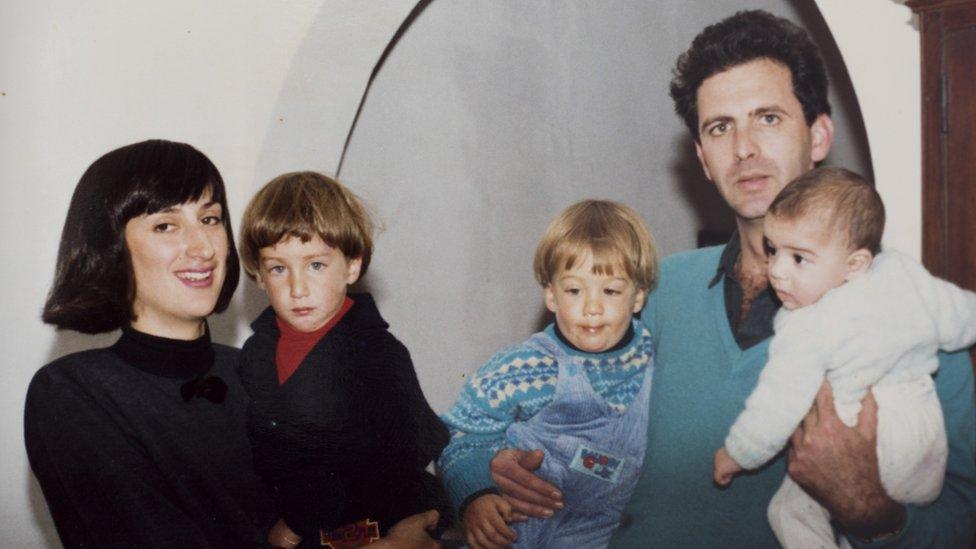
Caruana Galizia (pictured in 1989) was survived by her husband and children
Vincent Muscat later told police the bomb had been placed in Caruana Galizia's car while it was parked outside the walled compound where she lived. The killings earned the trio 150,000 euros (£132,000), Reuters news agency reports, external.
- Published30 November 2019
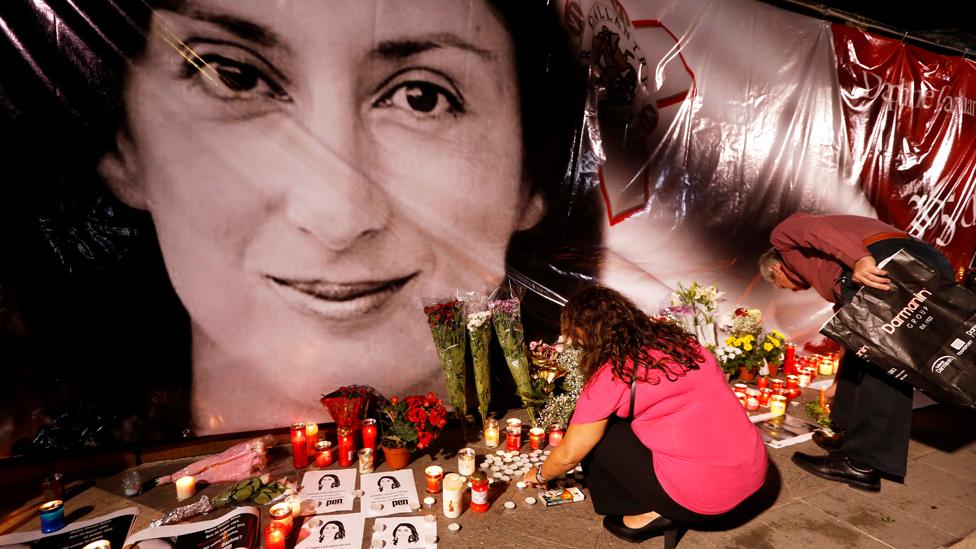
- Published26 November 2019
